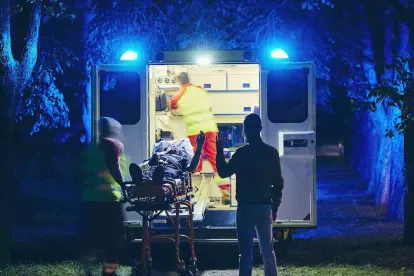On August 17, 2022, the Centers for Medicare and Medicaid Services (CMS) issued a bulletin (Bulletin) to states addressing potentially inappropriate cost-based proposals and practices related to governmental ambulance providers in the delivery of ground emergency medical transportation to Medicaid beneficiaries (GEMT). CMS states that the Bulletin was issued to remind states of existing federal requirements relevant to payment for GEMT ambulance services in Medicaid. As discussed in the Bulletin, the guidance is based on findings from past GEMT State Plan Amendment (SPA) proposals for additional Medicaid payments through a certified public expenditure or intergovernmental transfer program to pay fire departments and other governmental providers for costs incurred in furnishing GEMT ambulance transports.
Of critical interest is CMS’ focus on what constitutes “allowable direct and indirect cost associated with furnishing Medicaid-covered GEMT services.” As CMS notes, “[c]osts that are claimed improperly may be subject to financial reviews and/or audit findings and place states at financial risk of liability to repay the federal share of any identified overpayments.” Any states found by CMS to have improperly claimed costs would likely seek the return of overpayments from participating GEMT fire departments and other local GEMT government providers. While CMS does not expressly note this in the Bulletin, of greater importance is that any inaccurate characterization of costs by fire departments and other governmental providers could potentially lead to False Claims Act investigations and lawsuits filed by relators, i.e., whistleblowers, against providers that receive supplemental Medicaid reimbursements if they knowingly or recklessly submitted false cost reports in support of claims for Medicaid payments.
CMS also observes in the Bulletin that review of proposed SPAs [which are submitted by states to CMS for structural and reimbursement approvals for the Federal share of Medicaid payments], “identified potential issues with the scope of the costs that states have proposed as potentially allocable to Medicaid-covered GEMT services and the methods of allocation [that] states have proposed to apportion GEMT costs for purposes of claiming Medicaid FFP [Federal Financial Participation].” CMS repeats and underscores a basic principle of cost-based reimbursement in that these methodologies “should not shift costs to the Medicaid program that are not related to a Medicaid-covered services.”
More specifically, CMS notes that “[c]osts such as fire and rescue personnel and equipment are generally not directly or indirectly related to Medicaid covered services. As such, cost identification methodologies that inappropriately allocate costs associated with fire and rescue personnel and equipment to the Medicaid program potentially would be unallowable under the federal cost allocation requirements.” The Bulletin further clarifies that,
-
For Medicaid GEMT services, the cost objective is the transportation of a Medicaid beneficiary to a facility to receive emergently needed medical care; general fire and rescue activities would not be expected to benefit this objective.
-
In the case of the costs associated with fire and rescue personnel who are not Medicaid-participating providers performing covered services and their vehicles and equipment, those costs are readily assignable to the fire and rescue cost objectives rather than to the Medicaid objective of furnishing GEMT services and are not directly or indirectly attributable to a Medicaid-covered service furnished to a beneficiary.
-
There are no Medicaid benefits which specifically cover the transportation of a provider to a beneficiary.
-
[F]ire fighters who do not provide Medicaid-covered services would be assigned to the fire department’s cost objective.
-
Additionally, applicable federal regulations do not identify “shared direct costs”. . . .
-
A state or local law that requires a fire truck to accompany the ambulance on a call does not authorize the fire truck or fire fighters to be considered an allowable Medicaid service, and such costs not otherwise attributable to a Medicaid-covered service may not be allocated to Medicaid.
From these remarks, CMS seems to be drawing a distinction between costs for Medicaid-covered ambulance transports which are reimbursable, and costs for general fire services, e.g., first responder services, triage, or rescue services.
The Bulletin serves as direct and detailed guidance from CMS with respect to its expectations for public GEMT costs properly claimed to the Medicaid program for FFP. Fire departments and other governmental providers of GEMT services should review existing Medicaid state plan requirements and watch for SPAs that relate to this issue in anticipation that the states will comply with the CMS instruction, and align their services accordingly. The Bulletin constitutes CMS’ sub-regulatory guidance, and such guidance is relevant to deciding scienter and potentially other elements in a False Claims Act case. See our prior discussion on sub-regulatory guidance.





 />i
/>i

